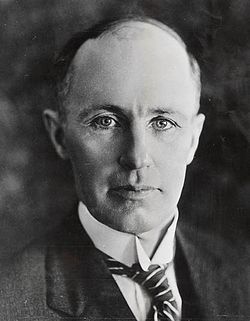11th Canadian Ministry 11e conseil des ministres du Canada | |
|---|---|
| 11th ministry of Canada | |
 | |
| Date formed | 10 July 1920 |
| Date dissolved | 29 December 1921 |
| People and organizations | |
| Monarch | George V |
| Governor General | Duke of Devonshire Viscount Byng |
| Prime Minister | Arthur Meighen |
| Member party | National Liberal and Conservative Party |
| Status in legislature | Majority |
| Opposition party | Liberal Party of Canada |
| Opposition leader | William Lyon Mackenzie King |
| History | |
| Legislature term | 13th Canadian Parliament |
| Incoming formation | Retirement of Robert Borden |
| Outgoing formation | 1921 Canadian federal election |
| Predecessor | 10th Canadian Ministry |
| Successor | 12th Canadian Ministry |
The Eleventh Canadian Ministry was the first cabinet chaired by Prime Minister Arthur Meighen. It governed Canada from 10 July 1920 to 29 December 1921, including only the last year of the 13th Canadian Parliament. The government was formed by the National Liberal and Conservative Party. Meighen was also Prime Minister in the Thirteenth Canadian Ministry.